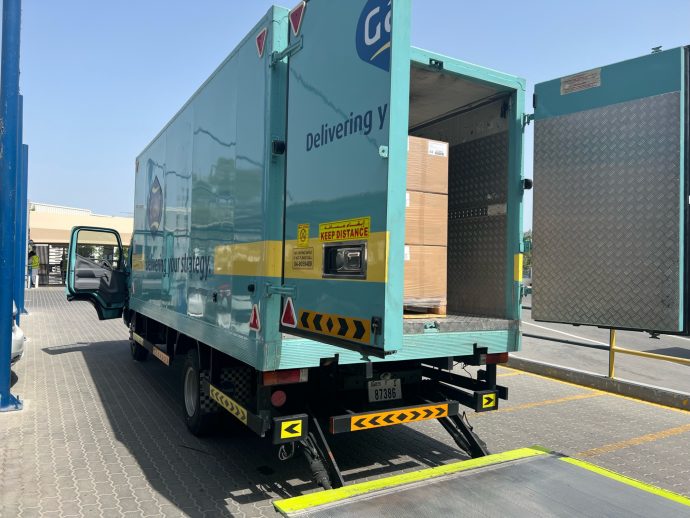The e-commerce market in the Middle East is on an accelerated growth trajectory, expected to reach a $50 billion valuation by 2025. However, that expansion comes with some major challenges for the logistics sector to cater to greater volumes and changing consumer demands.
As Trevor Stamp, GAC Dubai’s General Manager of Contract Logistics, explains, the business operates on tight schedules and cost margins, with no room for error. When even the smallest delay can start a domino effect that results in lost sales and eroded brand loyalty, the stakes have never been higher.
Changing habits
E-commerce has been on the rise for several years, but the Covid-19 pandemic sparked a major change to shopping habits. Even now, the consumer habits formed during lockdown persist.

There are now more than 5 billion internet users worldwide and the number of people making purchases online is ever-increasing. In 2024, global retail e-commerce sales are estimated to exceed 6.3 trillion U.S. dollars - and that figure is expected to reach new heights in the coming years.
Likewise, e-commerce in the Middle East has witnessed huge development, with high potential for further growth. High per capita income, established logistics networks and a growing tech-savvy young population offer high spending potential. The UAE e-commerce market alone is forecast to reach 17 billion U.S. dollars by 2025.
Precision
GAC has invested heavily in state-of-the-art facilities and developed capabilities tailored to the unique needs of the e-commerce. The Middle East's strategic position as a bridge between East and West has made it a focal point for global logistics, and GAC is at the forefront of this transformation, ensuring that goods move seamlessly across the region.
"The challenge for logistics providers like GAC is meeting increased demand for efficient storage, transportation and distribution of goods to satisfy the demands of an increasingly sophisticated customer-base," says Stamp. “To do so, they must be agile, capable of adapting to rapidly changing consumer behaviours and expectations.”
With 60 years of experience under its belt, GAC's long-standing presence in the Middle East has given it a unique advantage.
"We have organically developed those capabilities over a long period of time, built those facilities, and gained the experience to become a well-established household name in the region," Stamp notes.

That expertise enables GAC’s teams across the Middle East to offer a customisable service package designed to meet the demands of the e-commerce sector, from last-mile delivery to reverse logistics and inventory management.
One of the key shifts in consumer behaviour has been the expectation for near-instant delivery.
"Customer expectations has evolved - the days where someone eagerly awaited their package days ahead are gone,” says Stamp. “In turn, at GAC, we keep pace by continuously refining our operations to ensure our solutions are efficient, flexible and responsive to the ever-changing needs of online shoppers.”
The power of tech
E-commerce would not be possible without the necessary technology to provide the required transparency and efficiency. GAC’s teams throughout the Middle East have invested in warehouse and transportation management systems, RFID sensors, data analytics, automation and more.

"We are constantly in a race against time in order to keep up, so we explore any and all advantages to ensure we remain competitive and offer the best level of service to maintain our position as a leader in e-commerce logistics," adds Stamp.
At the TLME Future-Proof Technologies conference, Dr Jonathan Beard, Partner of Strategy & Transactions at EY, asserted that “digitalisation can give you a huge potential to improve operations” and is already driving significant improvements in speed and efficiency in logistics, although complete automation of the sector is still in its early stages.
Stamp agrees: "Automation has the potential to revolutionise logistics, but we are still in the early days of seeing its full impact."
GAC Dubai's implementation of the Lean Six Sigma initiative further exemplifies the company’s commitment to operational excellence. This data-driven methodology aims to reduce process variations and defects, driving GAC towards a 99.99966% defect-free performance.
Future watch
"The Middle East region has a vital logistics role to support the future development of e-commerce, so key players - including GAC – must continue to improve operations and infrastructure," Stamp predicts. “As consumer demand continues to evolve to new challenges that arise, GAC is preparing itself to capitalise on the opportunities that lie ahead, ensuring that we remain a trusted partner for businesses navigating the complexities of the sector.”
By aligning its services with the evolving needs of the market, GAC is poised to contribute significantly to the growth and success of the Middle East’s e-commerce sector.